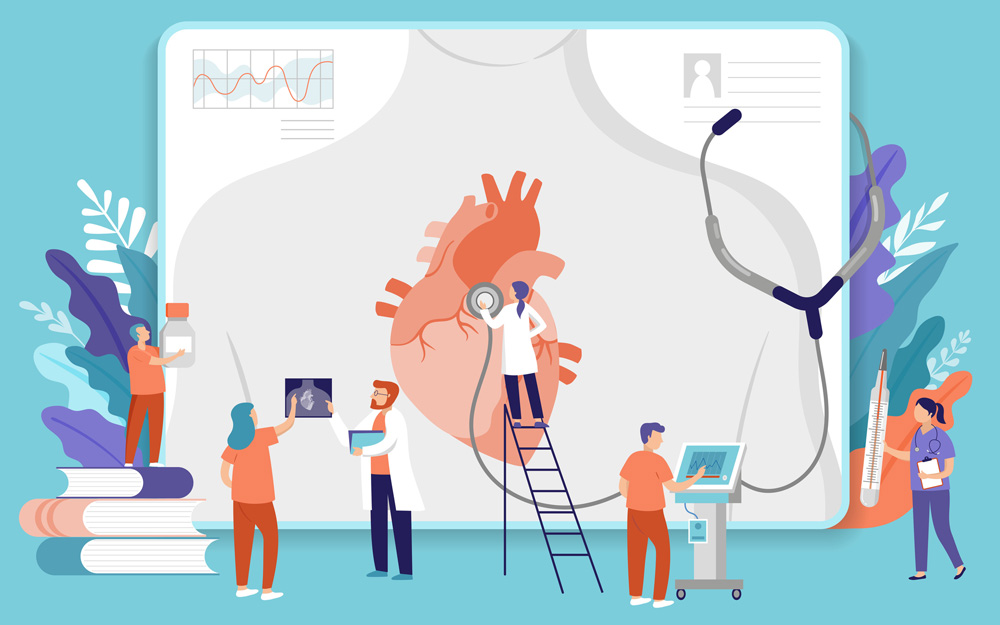Progress, Molecule by Molecule
Date
January 1, 2020
Credits

Date
January 1, 2020
Credits
Medical providers featured in this article
In Brief
{{cta-block}}
Biomarkers—measurable traces of molecules in blood or tissue—can provide clues for diagnosing and treating diseases. They indicate distinctions in age, lifestyle and chronic conditions—and they also promise to reveal crucial differences in how disease acts in women and men.
"The fundamental biology between men and women is often different," says Jennifer Van Eyk, PhD, director of Basic Science Research in the Barbra Streisand Women's Heart Center. "That means diseases and their underlying mechanisms can affect us differently."
One clear example: Heart attacks traditionally have been diagnosed with a test measuring the level of troponins in the blood. These proteins play a role in contractions of the cardiac muscle, and more of them appear in the bloodstream following heart injury. However, even though data shows that women in cardiac crisis have lower levels of troponins than men, the tests remain one size fits all, resulting in women's heart attacks often going undiscovered.
Now, in a study that only includes women, Van Eyk's team is identifying biomarkers that she predicts will allow for early and nearly continuous monitoring of patients with atherosclerosis. Her team also seeks to use biomarkers to identify patients with rheumatoid arthritis (RA) who are at particularly high risk of developing heart disease. RA is a condition that primarily affects women.
Other paths of biomarker exploration include traumatic brain injury, chronic kidney disease and urinary pain syndrome.
Although the Van Eyk Laboratory focuses on heart disease, sex differences have been documented in many health conditions, including cancer, Alzheimer's disease and prediabetes.
READ MORE STORIES IN THIS SPECIAL REPORT
Everybody Hurts, Hearts and Minds, Misconceptions, The Age Gap, Menopause Matters, The Unfair Sex





